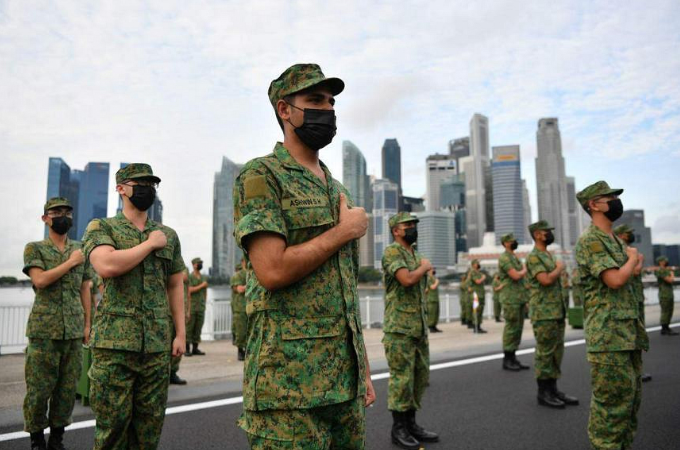Defence Minister Ng Eng Hen reaffirms support from foreign partners amid regional tensions
On Monday, September 12, Defence Minister Ng Eng Hen assured Parliament that Singapore’s international partners have committed to maintaining the Singapore Armed Forces’ (SAF) access to overseas training grounds for the foreseeable future. This assurance follows concerns raised by Workers’ Party MP Gerald Giam regarding potential disruptions to SAF’s training exercises in regions such as Northeast Asia, amid recent geopolitical tensions.
Ng acknowledged that the Covid-19 pandemic caused temporary disruptions to overseas training spaces, but confirmed that these operations have now returned to pre-pandemic levels. He highlighted that the SAF plans with redundancy in mind to ensure training continuity, regardless of disruptions such as pandemics or other unforeseen events.
The Minister expressed Singapore’s appreciation for the opportunities provided by foreign partners, enabling the SAF to conduct large-scale and complex exercises not possible locally due to limited land, sea, and air space. These partnerships, he noted, reflect the strong and enduring defence relationships Singapore has cultivated over the years.
While both Ng and Giam refrained from naming specific countries, the tensions in the region—particularly involving China and Taiwan—are well-known. Following U.S. House Speaker Nancy Pelosi’s visit to Taiwan in August, China held large-scale military drills in retaliation, some of which involved ballistic missiles crossing into Japan’s Exclusive Economic Zone.
A long-standing and sensitive aspect of Singapore’s overseas training includes its arrangement with Taiwan, known as Project Starlight. This agreement, dating back to 1975, allows the SAF to train in Taiwan, even after Singapore established formal diplomatic relations with China in 1990. Despite China’s objections to this arrangement, citing its “one China” policy, Singapore has maintained this training programme, albeit with a reduced number of troops, down from around 10,000 to 3,000 annually.
Ng reaffirmed Singapore’s position, emphasizing that while foreign training arrangements may fluctuate due to regional tensions, the country will continue to work with its partners to ensure the SAF’s readiness and capabilities.








